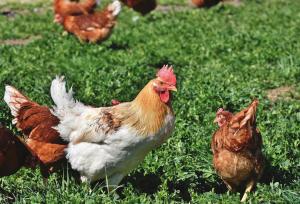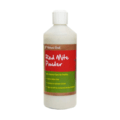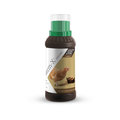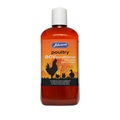There are many types of internal and external parasites which may affect your laying hens each type can cause different symptoms.
Parasites have evolved with birds over millions of years and small numbers of parasites will usually complete their lifecycle in the host without necessarily causing any obvious harm. The common poultry worms are Roundworm (Ascaridia galli), Hairworm (Capillaria spp), Caecal worm (Heterakis gallinarum) and Gapeworm (Syngamus trachea).
Parasitic worms have a very fast lifecycle (as little as 14 days) and produce very large numbers of eggs which are excreted with the faeces. These eggs are then eaten by hens foraging in the same area; the worm eggs complete their lifecycle in stages inside the bird. Because of the very fast lifecycle, it is easy for an infestation to build up quickly, both on your pasture and within the birds, especially as we now keep chickens in relatively confined areas.
Birds with just a moderate infestation may start loing weight, produce fewer eggs, produce eggs with pale yolks or fragile shells, have diarrhoea, become dull and depressed or stop eating, and you may even see adult worms in the faeces. Severe infestations may result in death.
All backyard flocks should be treated at least four times per year. If your hens have a heavy infestation, it may be necessary to repeat treatment after 3 weeks.
Are my birds at risk?
All free-range, outdoor birds are at risk of contracting worms.
You can minimise the threat by:
- Reduce 'poultry sick' areas and standing water in the coop.
- Keep drinkers and feeders clean and move them regularly.
- Keep wild birds and animals from coming near your hens.
- Practice good 'biosecurity', as worm eggs can be carried in by boots and wheelbarrows.
Written by: Flubenvet (Guest Author)




